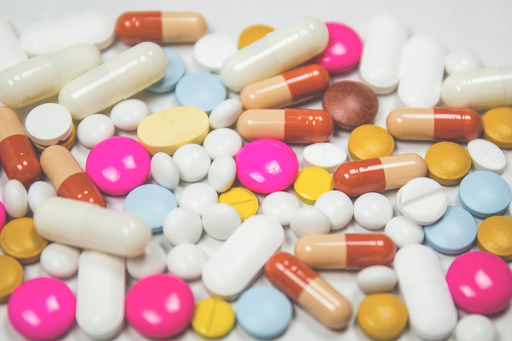Peptides, once overlooked, are now in the limelight of medical and cosmetic industries. Their versatile properties and potential applications have led to a surge in research and product development. Read on to explore the emergence of peptides in medicine and cosmetics, exploring their mechanisms of action, current and potential applications, and the future of peptide-based therapies.
Peptides in Medicine: Therapeutic Potential
Peptides are being investigated for their therapeutic potential. They can act as hormones, neurotransmitters, and growth factors. For instance, insulin is a peptide hormone used to manage diabetes. You can use peptides for testosterone increase – it’s important to consult with a healthcare professional before use. Peptide-based drugs are also being developed to treat conditions like cancer, cardiovascular diseases, and infectious diseases.
Understanding Peptides: The Basics
Peptides are short chains of amino acids, the building blocks of proteins. They are smaller than proteins and are typically composed of 2-50 amino acids. Their structure and sequence determine their function. In the human body, peptides play vital roles in various physiological processes, such as hormone regulation, immune response, and cell signaling.
- Peptides are short chains of amino acids, which are the building blocks of proteins. They are typically made up of two to fifty amino acids and are synthesized in the body through the process of protein synthesis. Peptides play a crucial role in various physiological processes, such as hormone regulation, immune response, and cell signaling.
- The use of peptides in medicine and cosmetics has gained popularity due to their ability to target specific cellular processes and produce targeted effects. For example, peptides can stimulate the production of collagen, a protein that is essential for maintaining the skin’s elasticity and firmness.
- In medicine, peptides are used to treat a wide range of conditions, including diabetes, cancer, and autoimmune diseases. Peptides are also used in cancer therapy to target and destroy cancer cells without harming healthy cells.
Peptides in Cosmetics: Beauty from Within
Cosmetic companies are tapping into the benefits of peptides for skin care. Peptides can penetrate the skin and stimulate collagen production, improving skin elasticity and reducing wrinkles. They can also help in wound healing and skin repair. Peptide-based skincare products are gaining popularity due to their effectiveness and safety.
Challenges and Opportunities
Despite their promising potential, peptides face challenges in stability, delivery, and manufacturing. They can be easily degraded in the body and have limited oral bioavailability. Researchers are working on innovative solutions, such as peptide modifications, nanotechnology, and delivery systems, to overcome these hurdles.
- Despite their potential benefits, peptides face several challenges in medicine and cosmetics. One major challenge is the limited stability and bioavailability of peptides, which can affect their effectiveness. Peptides can be easily degraded by enzymes in the body, making it difficult to deliver them to their target site.
- Another challenge is the cost of peptide-based drugs and cosmetics. Peptides are expensive to produce, and the cost of manufacturing can be passed on to consumers. This can make peptide-based products inaccessible to some individuals, particularly those without insurance coverage or limited financial resources.
- Despite these challenges, peptides offer numerous opportunities for innovation in medicine and cosmetics. Researchers are exploring the use of peptides as targeted therapies for various diseases, such as cancer and Alzheimer’s disease. Peptides can be designed to specifically target diseased cells, reducing the risk of side effects associated with traditional treatments.
- In cosmetics, peptides offer the opportunity to develop novel anti-aging products with targeted effects. For example, peptides can be designed to stimulate the production of specific types of collagen, such as type III collagen, which is important for skin elasticity.
The Future of Peptides: Personalized Medicine and Beyond
The future of peptides in medicine and cosmetics looks bright. Advancements in technology and research are opening new avenues for peptide-based therapies. Personalized medicine, where treatments are tailored to an individual’s genetic makeup and needs, could benefit greatly from peptides. Moreover, the use of peptides in targeted drug delivery and regenerative medicine holds promise for treating various diseases and conditions.
Ethical Considerations and Safety
As with any emerging technology, ethical considerations and safety are paramount. The use of peptides in cosmetics should be regulated to ensure consumer safety and prevent false claims. In medicine, rigorous testing and clinical trials are necessary to establish the efficacy and safety of peptide-based therapies. Ethical guidelines should be followed to ensure the responsible and ethical use of peptides in research and practice.
 Peptides have emerged as a promising class of molecules in both medicine and cosmetics. Their diverse properties and applications make them a valuable asset in various fields. However, challenges such as stability and delivery need to be addressed, and ethical considerations must be taken into account. With ongoing research and advancements, peptides are poised to revolutionize personalized medicine and skincare, offering safer and more effective treatments for a wide range of conditions.
Peptides have emerged as a promising class of molecules in both medicine and cosmetics. Their diverse properties and applications make them a valuable asset in various fields. However, challenges such as stability and delivery need to be addressed, and ethical considerations must be taken into account. With ongoing research and advancements, peptides are poised to revolutionize personalized medicine and skincare, offering safer and more effective treatments for a wide range of conditions.

